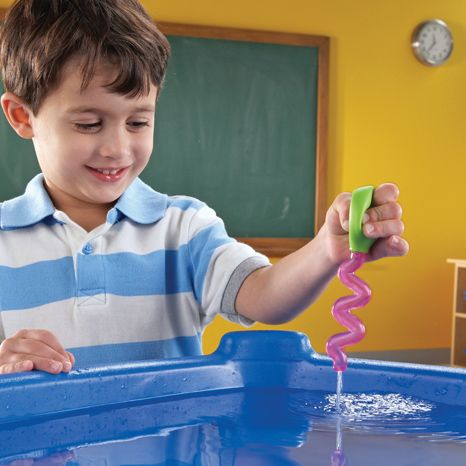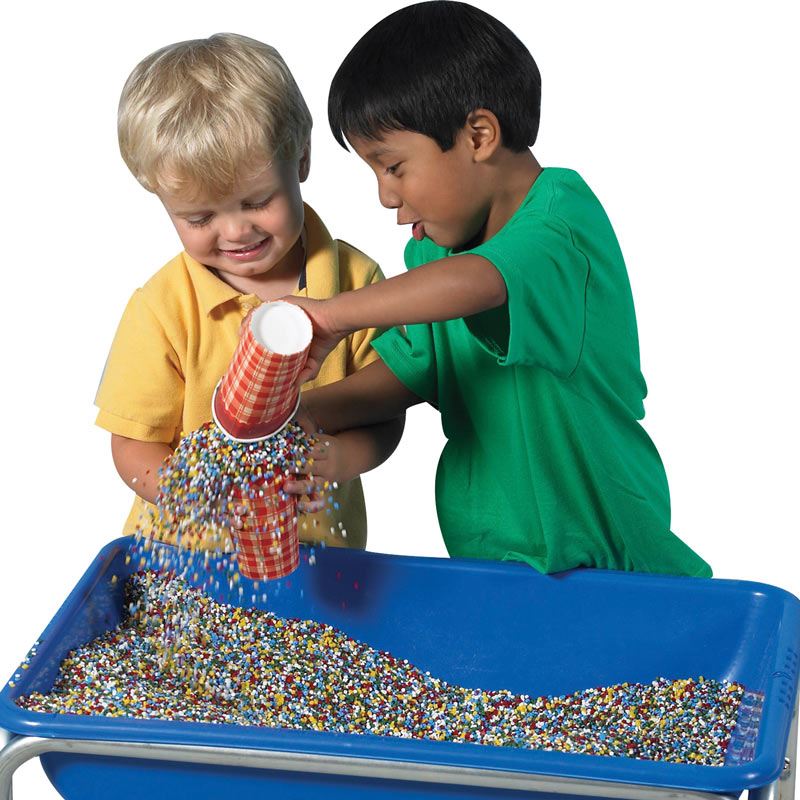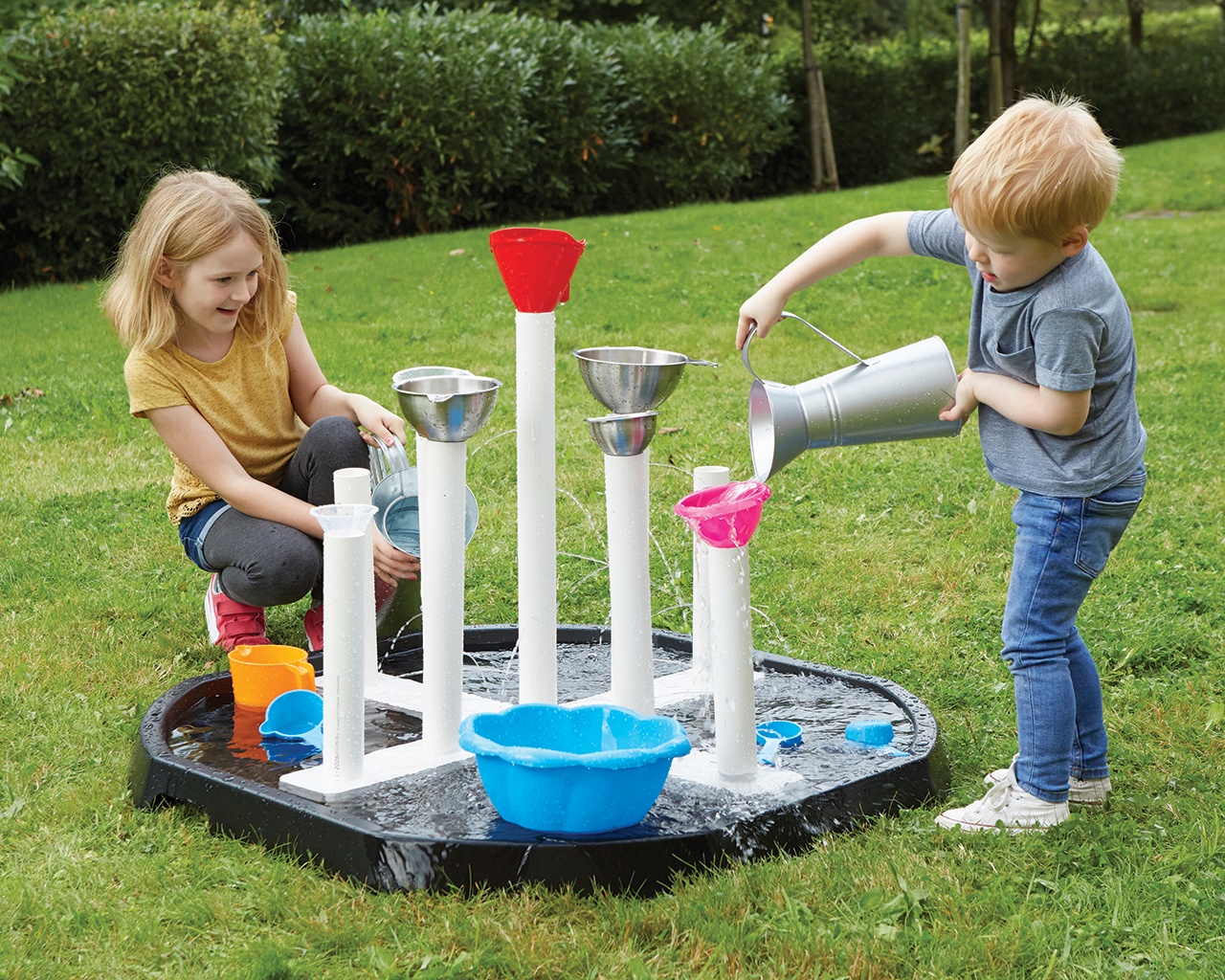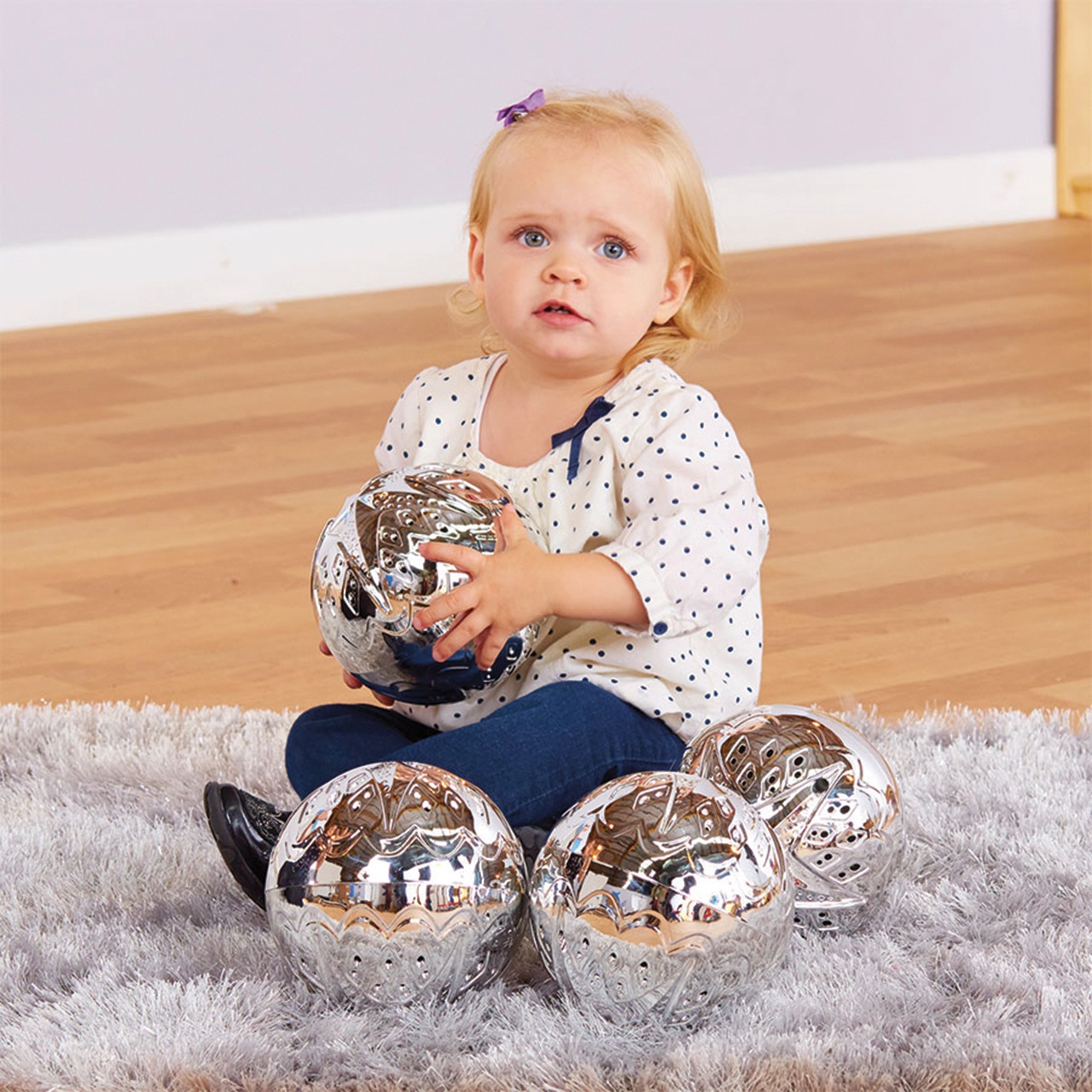It is important to give children the space and time to investigate the world around them using all their senses, what better way to do that then through sensory play!
Not only can sand and water play provide children with hours of exploration and fun, it is also vital to their learning experience.
Here are some tips on how to facilitate learning at the sand and water table and beyond:
1. Ask questions to extend thinking
Great questions include: "What will happen if...", "What does this feel like?", and "How would I create..."
2. Provide tools and exploration resources
There are many fun tools for children to fill, dig up, pour, and bury. Children love new things, so switch out your tools every so often to keep them fresh.
 Twisty Droppers are always a hit!
Twisty Droppers are always a hit!
3. Answer questions
Children will naturally have many questions as they play with sand and water, so after you answer them, extend their learning experience to lessons about nature or weather.
4. Your play area can go beyond sand and water
There are so many new and exciting sensory table alternatives, so why stick with just sand and water? Kids love the cold touch of Insta-Snow, the fun colours of Kidfetti, and the mesmerizing experience of Kinetic Sand. Try them all!
 Kidfetti is a great alternative to sand and water!
Kidfetti is a great alternative to sand and water!
5. Vary the contents
Include sensory beads, pinecones, bark, twigs, and even mud! Your sensory tables can reflect your units of study by including dinosaur bones for excavations or play vegetables to create a garden.







